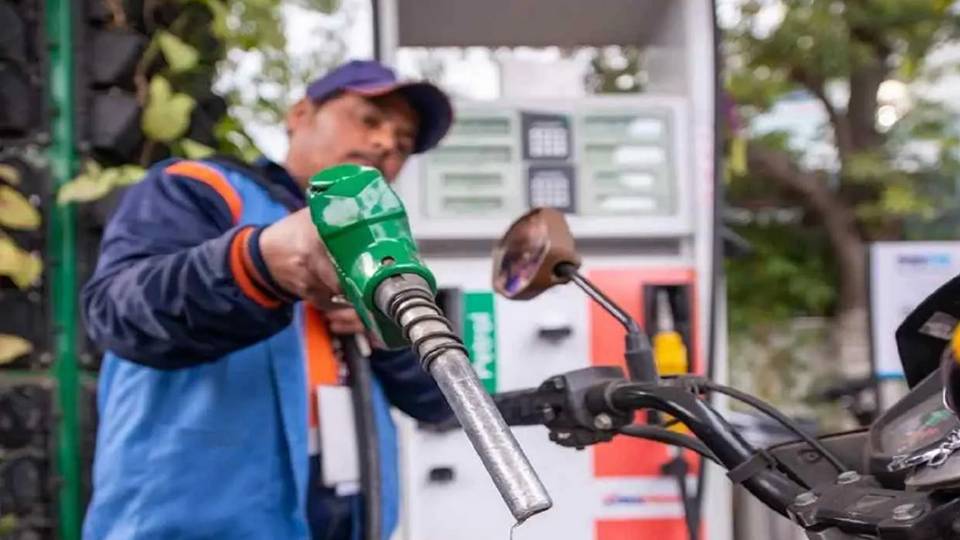Trade, business, and industry are the foundational pillars of the financial security of a country. Exports are one of the most preferred ways to generate financial resources as they provide the country with enough budgetary support to develop. India, on a similar line, is trying to raise its export base in the world and capture the market for its goods and services. But, the exports of the country’s resources need to be rationalized. India cannot afford to export those resources which are in deficit in the country.
Export duty increased on fuels
According to reports, the Modi government on Friday announced to impose SAED (Special Additional Excise Duty) on diesel and petrol by Rs 13 per litre and Rs 6 per litre, respectively. Further, a cess of Rs 6 per litre has also been imposed on the export of Aviation Turbine Fuel.
– Govt raises export duty on diesel by Rs 13/litre
– Govt raises export duty on petrol by Rs 6/litre
– Govt raises export duty on ATF by Re 1/litre
– Increase in taxes in fuel to not impact the domestic prices @FinMinIndia @nsitharaman @Meghnamittal23 #FuelPrices pic.twitter.com/48bfkVctEp— ET NOW (@ETNOWlive) July 1, 2022
Owing to the rise of crude prices in the international market and resulting windfall gains of the domestic crude producers, a cess of Rs. 23,250 per tonne has also been imposed. The decision has been taken in the light of the fact that the domestic crude producers sell crude to domestic refineries at international parity prices, and due to price rise they are having good windfall gains.
The Finance Ministry, in its press brief related to the decision said, “At the same time, EXPORT POLICY condition has been imposed by the DGFT (Directorate General of Foreign Trade) that the exporters would be required to declare at the time of exports that 50% of the quantity mentioned in the shipping bill has been/will be supplied in the domestic market during the current Financial Year.”
“These measures would not have any adverse impact on domestic retail prices of diesel and petrol. Thus, domestic retail prices would remain unchanged. At the same time these measures will ensure domestic availability of petroleum products,” the brief added.
Also Read: Modi government is set to bring petrol and diesel under the purview of GST
Need for protection
Due to the global price rise in crude petroleum, the prices of HSD and Petrol have also shown a sharper rise. It is important that the domestic refiners export these petroleum products at globally prevailing prices. The highly remunerative export forces domestic refineries companies to dry out the country’s supply and divert the same to the international market.
According to data from the oil ministry’s Petroleum Planning and Analysis Cell (PPAC), India is the world’s third-biggest oil-consuming and importing nation. The country spent $119.2 billion in 2021-22, up from $62.2 billion in the last fiscal year. As the country imports 85.5% of its required crude oil, it has a surplus refining capacity and exports huge petroleum products.
India imported 40.2 million tonnes worth $24.2 billion of petroleum products in the 2021-22 fiscal years and 62.8 million tonnes worth 42.3 billion petroleum products were exported. Combining the trade balance of crude and refined products brings the country to a $113 billion deficit. In a way, India exports $42.3 billion worth of petroleum products, and three-fourths of the total exports are Diesel and Petrol.
Also Read: BJP states have cut petrol prices but most non-BJP states are still refusing
The SAED by the government is in the direction to limit the export of refined petroleum products. As the country is facing huge budgetary constraints due to the high crude import bill, if unrestricted export of refined products is allowed then the domestic market will dry out of refined products, and will affect the internal petrol and diesel market.
In an effort to ensure the uninterrupted fuel supply in the country, the government has further expanded the horizon of universal service obligation (USO). All retail petrol pumps in the country have been asked to maintain the supplies of specific quality and quantity of petrol and diesel. Moreover, the retail petrol pump owner has been said to maintain the minimum inventory levels of fuel as prescribed by the centre to ensure price stability. The decision has been taken to protect the country from energy contingency situations.
Support TFI:
Support us to strengthen the ‘Right’ ideology of cultural nationalism by purchasing the best quality garments from TFI-STORE.COM
